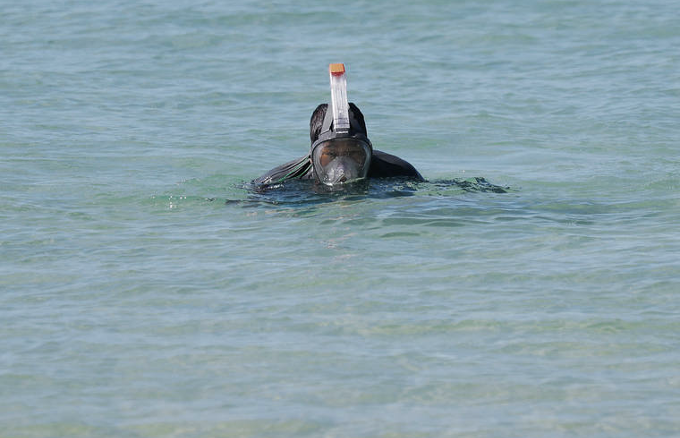
Study links pulmonary condition to Hawaii snorkeling deaths
Photo: JAMM AQUINO/JAQUINO@STARADVERTISER.COM
January 18, 2021
A rise in drowning deaths or near drownings during Hawaii snorkeling excursions has been linked to a pulmonary condition that was not previously associated with snorkeling.
The state Department of Health said a specific form of hypoxia, or asphyxiation, known as rapid onset pulmonary edema was implicated in 206 Hawaii drownings from 2009 to 2018, the Honolulu Star-Advertiser reported Sunday.
An “alarming” increase in drownings, many of them considered mysteries, included 189 island visitors who were struck by rapid onset pulmonary edema, officials said.
“Resistance to inhalation sets off this negative pressure in your lungs, and then your bodily fluids start to intrude into this really delicate mechanism,” said Dr. Philip Foti, an Oahu pulmonologist. “Your lungs start to fill up with fluid and very quickly there’s no oxygen going into your blood stream.”
A two-year “Snorkel Safety Study” ordered by the health department in 2017 and released in interim form last week found “hypoxia induced by (rapid onset pulmonary edema) is the cause of some, probably most, snorkel related fatal and near fatal drownings.”
Investigators studied equipment data collected by Honolulu Ocean Safety, including tests on 49 snorkel varieties.
Foti, the study’s lead investigator, determined equipment with high air-flow resistance resulting in difficulty inhaling may lead to the rapid edema condition.
Ralph Goto, a retired director of the Ocean Safety Division of the Honolulu Emergency Services Department who served as the study’s project administrator, said the type of mask worn was identified in only 16% of the drownings recorded.
Full-face masks were worn in five drownings, while conventional two-piece masks and snorkels were worn in 11, Goto said.
Full-face masks cannot be removed easily, even with quick-release features, and mouthpieces cannot be “spit out” in urgent situations, the report said.
Additionally, water cannot be cleared from the full-face snorkel tube by exhaling forcefully, as with conventional gear. Snorkelers cannot dive beneath the surface safely and valve malfunction may lead to significant inhalation of water, the report said.
Full-face masks may be a risk factor in developing the edema, but posed “no inherent advantage or disadvantage” in air-flow resistance, the report concluded.
Simple snorkels generally produced the least air-flow resistance, the study’s tests showed.
